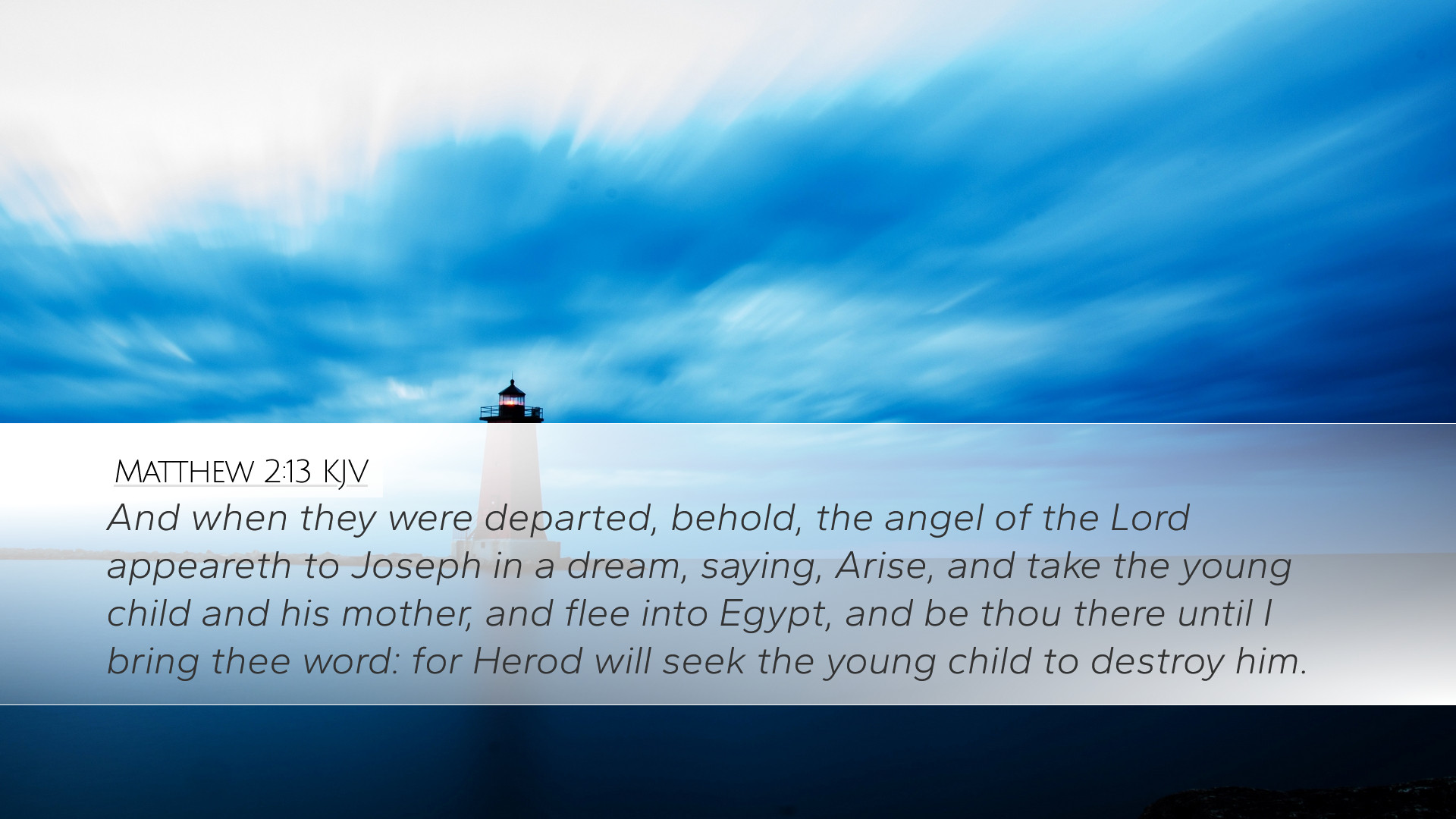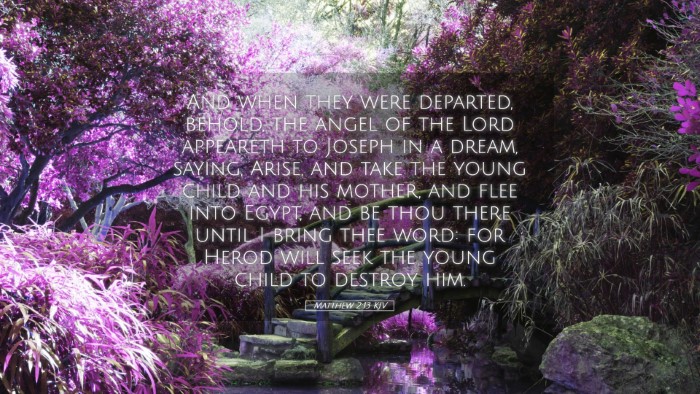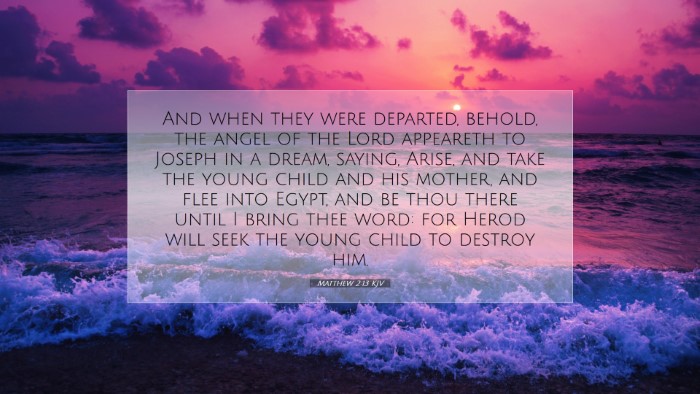Commentary on Matthew 2:13
Matthew 2:13 states, "And when they were departed, behold, the angel of the Lord appeareth to Joseph in a dream, saying, Arise, and take the young child and his mother, and flee into Egypt, and be thou there until I bring thee word: for Herod will seek the young child to destroy him." Through this verse, the narrative of the early life of Jesus unfolds with significant prophetic and theological implications. Here we explore various insights gleaned from esteemed public domain commentaries.
The Context and Setting
The events in Matthew 2:13 occur just after the visit of the Magi, who recognize Jesus as the King of the Jews. The king, Herod, feeling threatened by the birth of this new king, plots to eliminate any opposition to his rule. The call to flee to Egypt demonstrates God's providence and protective guidance over Jesus and His family.
Insights from Commentators
Matthew Henry
Matthew Henry emphasizes the divine intervention portrayed through the angelic message to Joseph. He notes that Joseph's obedience to the command is a striking example of faith and trust in God's direction amid peril. Henry comments on the providential nature of God’s protection, asserting that "God continues to manage the affairs of His people, often working behind the scenes for their welfare."
Albert Barnes
Albert Barnes delves into the significance of Joseph's dream and the action he takes immediately thereafter. He remarks that dreams, particularly in the biblical narrative, often serve as channels for divine communication, highlighting Joseph’s role as a model of faithfulness and responsiveness to God's guidance. Barnes also discusses the historical context of Egypt as a place of refuge, drawing parallels to Israel’s own history during famine and persecution.
Adam Clarke
Adam Clarke provides a detailed analysis of the phrase "flee into Egypt." He explains that Egypt was a place where Jewish people often sought refuge due to its proximity and historical relationship with Israel. Clarke also reflects on the profound symbolism of Egypt in the biblical narrative, as it represents both captivity and deliverance. He posits that Joseph’s flight to Egypt fulfills the prophetic age-old foreshadowing of the Messiah’s life experiences, linking this moment to the broader narrative of salvation history.
Theological Implications
The command to flee into Egypt invites significant theological reflection:
- Divine Protection: The imperative given to Joseph reveals God's active role in safeguarding Jesus, the incarnation of divine promise.
- Obedience and Faith: Joseph's prompt response exemplifies the call for believers to act in faith upon receiving God's direction, regardless of uncertainty.
- Fulfillment of Prophecy: This event is part of the fulfillment of scripture, echoing prophecies that foreshadowed the Messiah's life, emphasizing the weight of God's promises.
Practical Applications
For pastors and theologians, Matthew 2:13 serves as a reminder of the importance of staying attuned to God's guidance. It encourages:
- Regular prayer and discernment in seeking God’s direction.
- Teaching congregations about obedience in the midst of fear and uncertainty.
- Reflecting on God's providential care and the ways He may lead us away from danger.
Conclusion
Matthew 2:13 presents a profound glimpse into the early life of Jesus, showcasing the heavenly protection surrounding Him. It challenges believers to examine their own responsiveness to divine guidance and to reflect deeply on the overarching narrative of God's plan for salvation. The insights from prominent commentators such as Matthew Henry, Albert Barnes, and Adam Clarke enrich our understanding of both the specific text and its broader implications for faith and practice.


